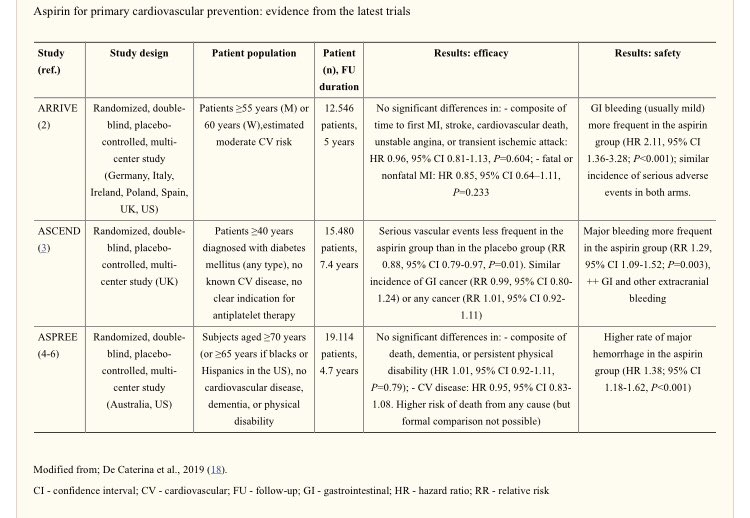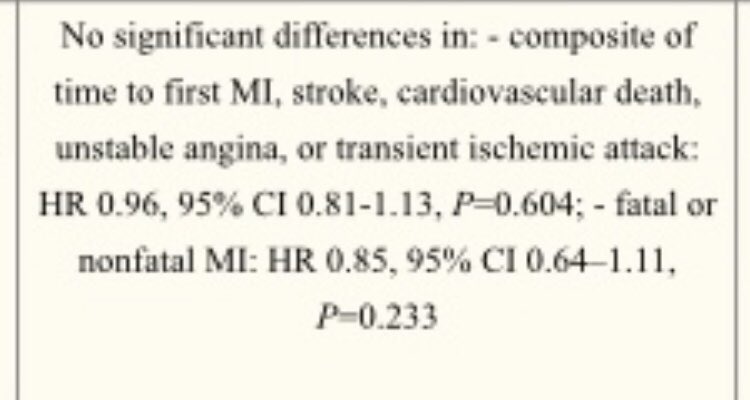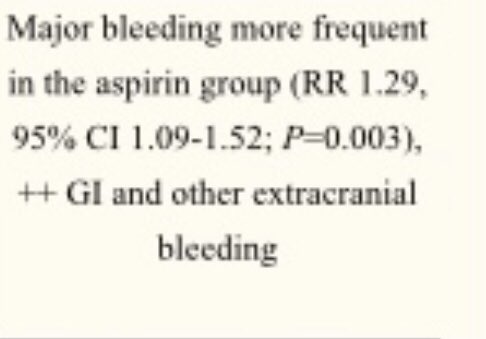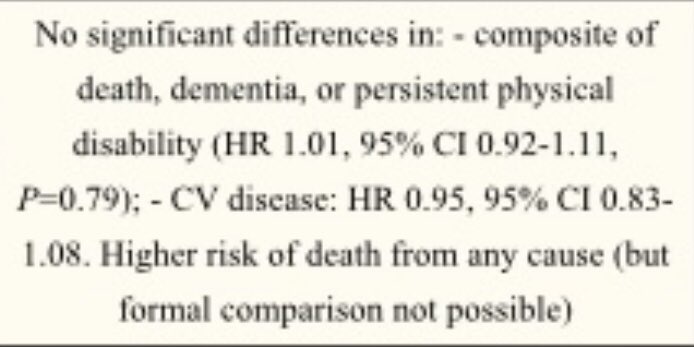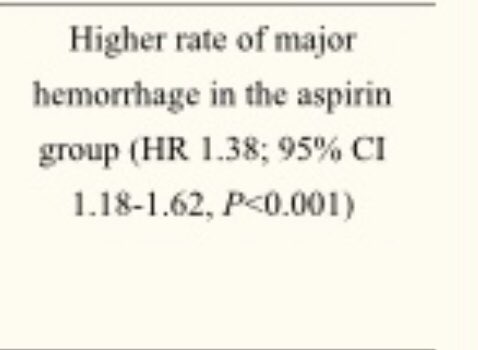ASPIRIN - For primary prevention of cardiovascular (CV) disease is being highly debated, especially after 3 studies in different settings reported that a reduction in ischemic events is largely counterbalanced by an increase in bleeding events. #aspirin #preventivecardiology
3 studies - Aspirin to Reduce Risk of Initial Vascular Events (ARRIVE) trial. - A Study of Cardiovascular Events in Diabetes (ASCEND) trial. - Aspirin in Reducing Events in the Elderly (ASPREE) trial #aspirintrials
Primary prevention in CVD means to prevent an acute coronary syndrome or acute stroke in a pt who has never had them. So what is the role of Aspirin in primary prevention? Should it not be used at all? Are there certain patients who benefit? And some who don't?
Pts undergoing primary prevention should achieve optimal control of CV risk factors. When pts are aged <70y and are free from physical disability or dementia, they should undergo a CV risk stratification, especially when there is evidence of subclinical atherosclerosis/diabetes.
When the 10-year risk of major adverse cardiovascular events (MACE) is >20%, it is recommended to start therapy with aspirin after discussing the risks and benefits of aspirin intake with the patients, particularly if there are no conditions of increased bleeding risk. #risk
Aspirin should be prescribed along with a proton-pump inhibitor (PPI) to reduce the risk of GI bleeding. The commencement of aspirin therapy should be carefully evaluated when the 10-year risk is between 10% and 20%, and aspirin should not be prescribed when the 10y risk is <10%

 Read on Twitter
Read on Twitter
